Whether the person you care for is on a special diet or not, it may be helpful to plan meals a week ahead. Include the person you are caring for in the planning process, so that you can learn their food likes and dislikes.
Planning ahead gives you time to buy the foods you need to have on hand to make the meals you have decided upon. This helps you better plan to have the right foods at hand and in a variety that will make meals interesting, appealing and within the person’s budget. If possible, spend time with a dietitian to guide you in planning meals.
This is very helpful when the person you care for is on a special diet.
The United States Department of Agriculture has tips for healthy food choices and ways to manage your diet.
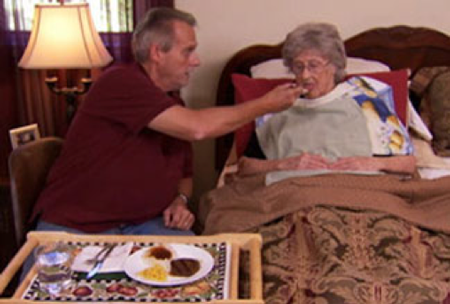
Most of us eat without help. However, when people are ill, their condition sometimes causes fatigue and keeps them from being able to eat. Injuries and problems with swallowing can also limit what people can do when they try to eat or feed themselves.
This is common in people with:
A person who needs help to eat requires your patience and understanding. Let the person you are caring for do as much on his or her own as possible. Do not take over feeding completely if a person can partially feed him or herself. Mealtime should be a pleasant, unhurried time and kept simple.
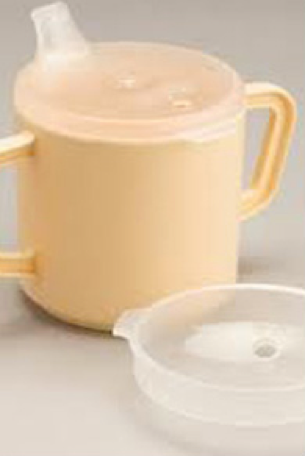
Two handled cup with spout in lid
Makes it easier for a person to hold and lift a cup. The spout makes drinking easier with fewer spills. Most of these cups have a wide base which prevents them from tipping over.
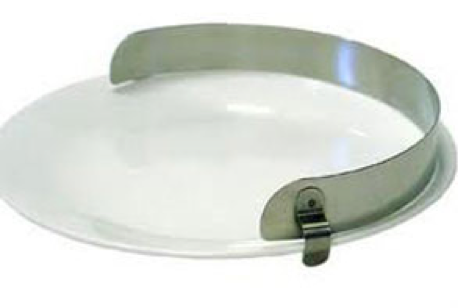
Plate with plate guard and non-skid bottom
Helpful to a person with limited flexibility of the hands, poor motor coordination, or has use of only one hand.
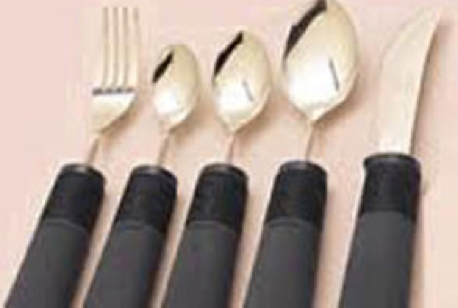
Knife, fork and spoon with large handles or attached splints
Helpful to a person with limited hand function or a weak grip.
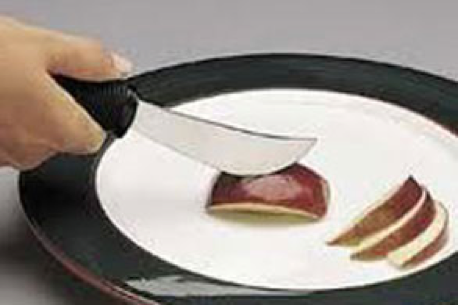
Rocking style knife
Helpful for a person with weak grasp, arthritis, or other painful condition in the hands and wrist. Rocking motion of knife makes it easier to cut food.
Any of these signs can mean a person has dysphagia:
Talk with a Dietitian - If you believe the person you care for has dysphagia, talk to their doctor.
Ask to speak with a dietitian. A dietitian is trained to identify persons at risk for swallowing problems. Once the problem is identified, the dietician will be able to pick the best type of diet with proper food and liquid consistencies.
For example, a dietitian can decide if the person will do best with a pureed or a mechanically altered diet. Liquid or pureed (pudding like) foods are often used for people who cannot chew solid or semi-solid foods or for people with certain types of dysphagia.
There are a variety of dysphagia diets, but do not choose one on your own. Let a trained dietitian be your guide.